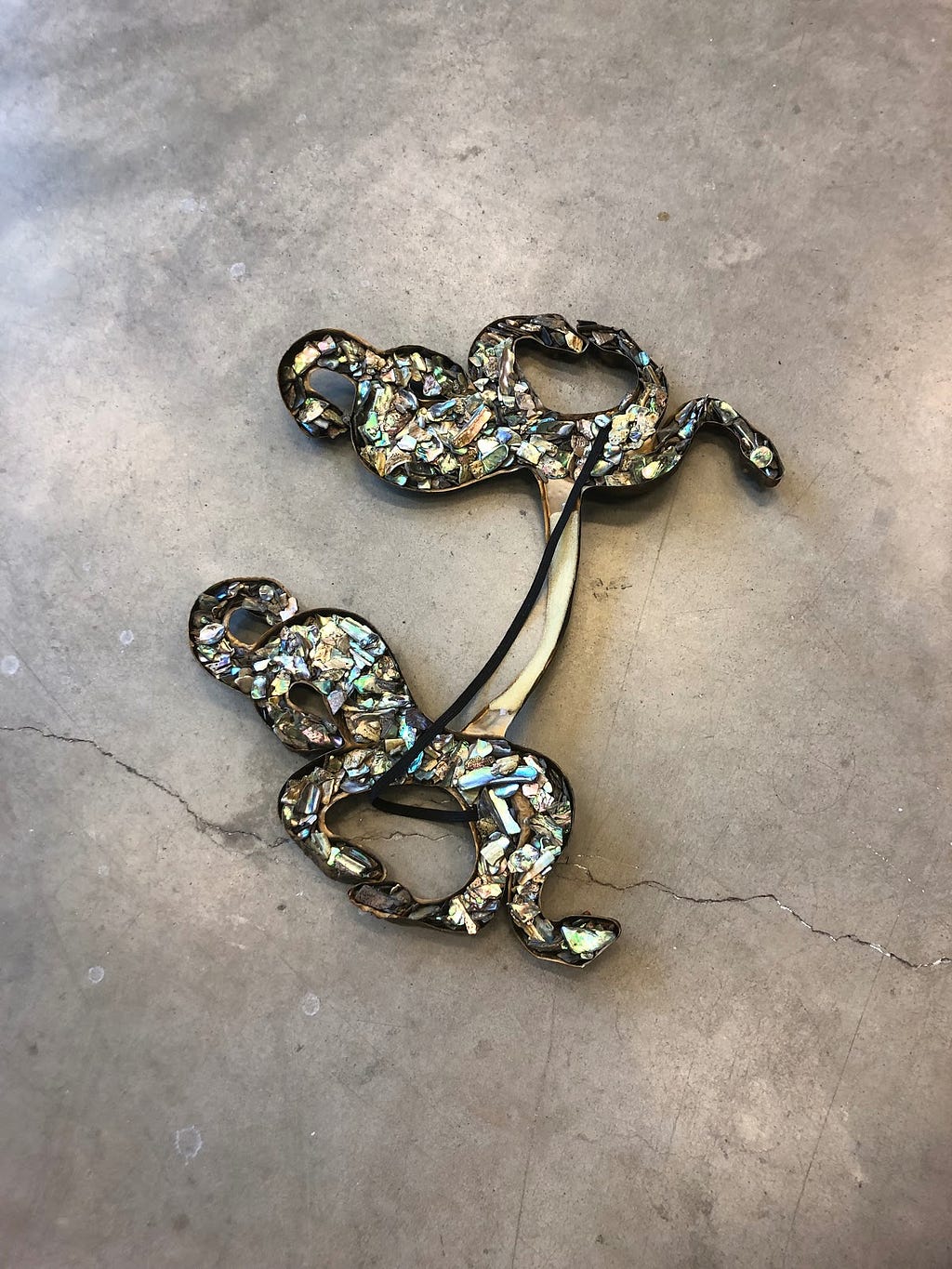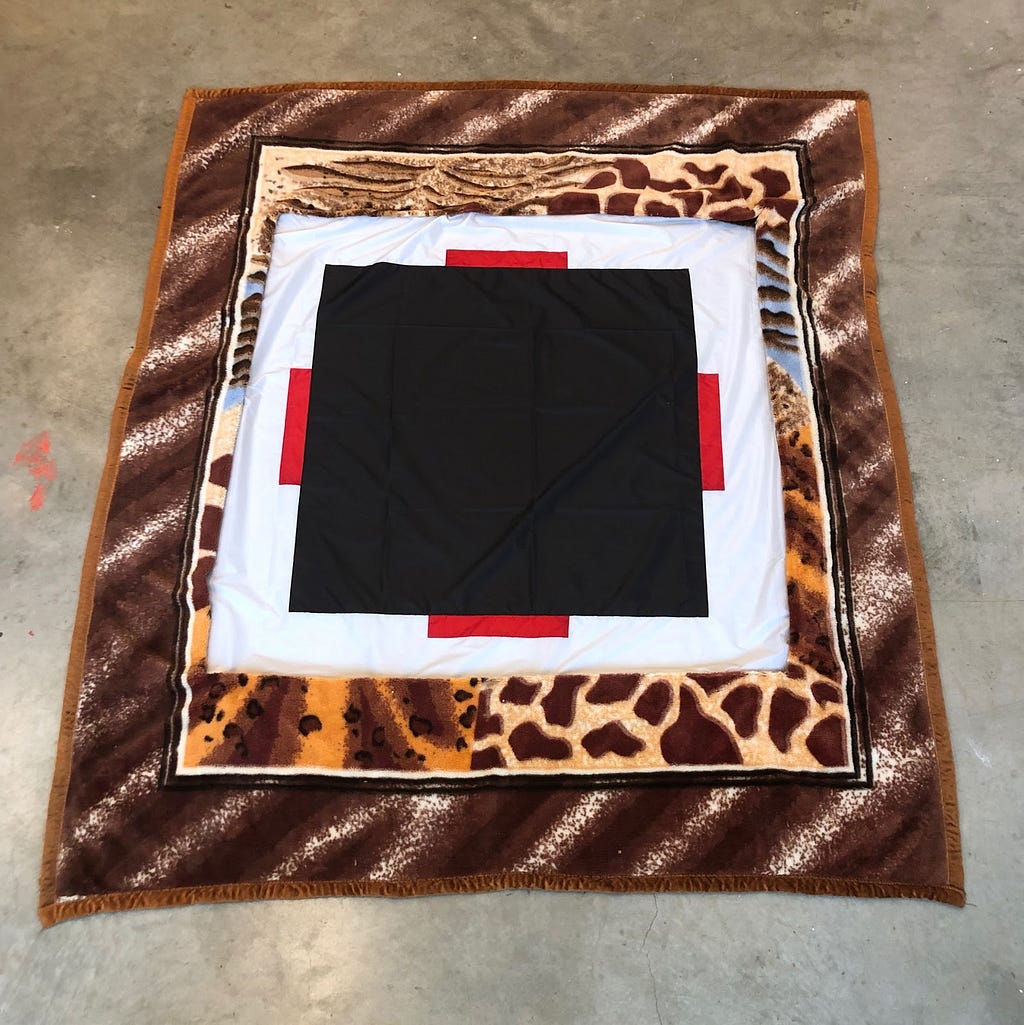Artist Portrait: Kevin Hernández Rosa
This week, the Herald interviewed Kevin Hernández Rosa, a sculptor and musician starting his first year in the MFA program. Following the release of his new album, Gorila, we talked about the ways his writing and sculpting relate to one another through their relationships to language.

Yale Herald: I thought it would be interesting if we started by talking about Gorila. I was immediately struck by the quote you sample on the intro track, The Moon, “follow the finger cause you’re gonna miss the heavenly glory… The moon, I’m pointing at the moon, n****. I’m not about to try and describe the moon to you, I’ma just tell you, ‘yo look.’” I couldn’t figure out who the speaker actually is, but there’s a lot going on here in terms of the way language is being treated. As someone who works primarily with readymades, which can be really hard to “read” in any sort of uniform way, it seems like you’re using this quote to connect your music to your sculptures. Was your decision to start Gorila with this quote based along those lines, considering the connection between language (in music) and your sculpture practice?
Kevin Hernández Rosa: The identity of the person who’s saying the quote, a Haitian rapper named Mach Hommy, is pretty important. He runs his own studio, has his own label, but there’s not anyone else on the label; it’s just him. I’ve read a lot of interviews with him, and it seems like he’s the most far removed from what a regular interviewee in the rap world would be. He could give an interview where he sounds like he went through some kind of MFA program (although he hasn’t). He doesn’t perform live, he just prices his stuff to compensate for that, selling music through DMs or Bandcamp, and charging like $100 to $1,000 per release. That business model is so different than your usual 360 record deal, so there’s an emphasis on making sure that the care put into the aesthetic content is also translating into self-love in how the economics are working. I mean, your longevity depends on your ability to live off your work. He’s truly interested in the form of rapping, and there are songs where he’s more of a virtuoso that someone like MF Doom or Black Thought or Kendrick Lamar. It’s just that he’s not as visible. He’s really about as close as you can get to underground now.
And I think what he’s saying is important too. What’s interesting is that he’s just describing this simple idea of creating metaphor, you know. At the end of the day, that’s the essence of what rap is. Giving a specific way to think about an idea, but it’s never just a one-liner or something like that. I do definitely think that’s related to my work. If you present an object instead of a word, you’re opting specifically not so say something. You’re offering something else in place of those words. It still has a readability, but it’s not the same as simply describing with words.
YH: Something I did notice about your album is that there are a lot of tracks with pretty thoughtful and intentional lyrics. As someone who is working often with found objects, do you think that this kind of writing can ever function the same way? How do you think that distinction between writing and objects play out in your practice?
KHR: I have a hard time remembering things. I used to do graffiti, and I think I probably suffer from some brain damage from all the tweaking, or inadvertently huffing the fumes. I also used to smoke too much weed. So there’s this relationship I have with language where it can sometimes be really hard to say simple things. Trying to communicate without speaking in some kind of cliché is really hard for me. So that’s one facet of the issue with language and objects.
I also think objects are more connected to the body than words. And sometimes I have a hard time thinking about the performative aspect of talking, giving a lecture or a presentation. I would often rather someone be able to internalize some distortion of what I’m trying to say by offering them an object.

I can try to make something to say something, but I’m actually not saying anything. And then when someone sees it, they’re probably going to think I’m saying certain things that I’m not saying. And I think that’s true for writing too, but there’s something about the fact that words are being used — the fact that there’s a loss in translation is not as recognized or acknowledged with writing or talking as there is when objects are used instead. People know that they probably don’t get it when presented with an object. With language it’s a different thing. And when I say object, I mean that could be a policy or architecture, too.
[…]
YH: That’s really interesting to me, your use of objects to force a recognition of the viewer’s own misunderstanding. So how do you think that relates to the lyrics in your songs? As a listener, there’s a lot that I read and listened to and was consciously aware of myself not understanding fully. Was that something you were attempting? And how would you place that relationship to words in this network of communication?
KHR: When I was an undergrad student, my professor Ryan Wolfe told me that when you’re writing, you have to always be conscious of your own goals, but also the perspective of the reader you’re writing for. I’m still figuring out how to do that well, but sometimes I’m just writing for myself. Honesty, I’m more interested in how that kind of writing becomes coded and esoteric. And how that then comes across to someone else. I think it’s related to my interest in the more animalistic qualities of a human: when you see something that looks like it was made by a bird, or a gorilla, but you know it was made by a human. Not human, but human. And I think isolating yourself, only communicating with yourself, is a way to get that eccentric quality in you work. It’s a generative process. I try to channel that in my work, get that same feeling.
Interview with Kevin Hernandez Rosa was originally published in The Yale Herald on Medium, where people are continuing the conversation by highlighting and responding to this story.
